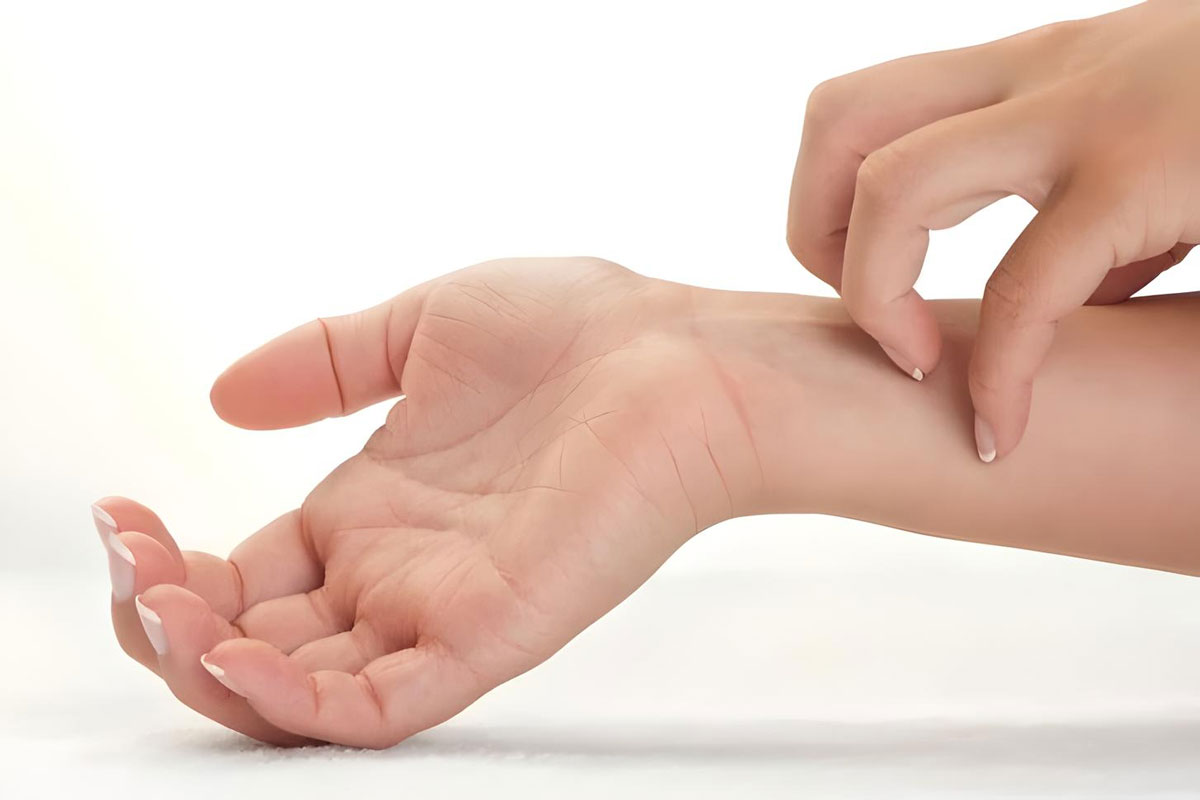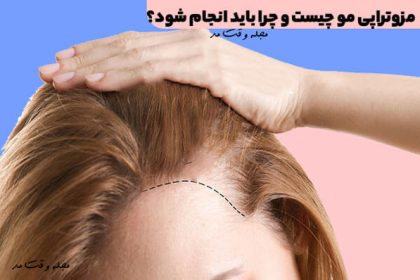Causes of itchy skin and its treatment
Itchy skin is an uncomfortable condition and may occur along with other problems and diseases such as dry skin, skin disease, pregnancy and in rare cases, cancer. Itching is one of the most common skin complaints that sometimes becomes so severe that it robs a person of sleep and peace. The intensity of itching is sometimes so severe that the patient injures his body by repeated scratching.
What are the causes of itchy skin?
Possible and common reasons for skin loss can include the following:
dry skin If you do not see patches and protrusions containing pimples and redness on your skin, or if you do not see sharp and sudden changes on your skin, then your problem is probably dry skin.
Skin problems and rashes – Many skin problems cause itching. Eczema, psoriasis, scabies, lice, chicken pox and hives are among these problems.
internal diseases These diseases include liver problems, wheat malabsorption (celiac disease), kidney failure, iron deficiency anemia, thyroid problems and cancers such as leukemia and lymphoma. In these types of diseases and problems, itching generally affects the whole body.
Neurological disorders Problems that affect the nervous system, such as MS, diabetes mellitus, shingles, etc., can cause itchy skin.
Inflammation and allergic reaction – Wool, chemicals, detergents and other substances can cause skin inflammation and itching. Sometimes substances such as poisons or cosmetics cause an allergic reaction. Food allergies also cause allergic reactions.
Medicines – Reactions to drugs, such as antibiotics, antifungal drugs, or narcotic drugs, can cause skin rashes and itching.
Pregnancy – During pregnancy, some women experience itching, especially on their abdomen, thighs, breasts and hands. Also, diseases that cause skin itching worsen during pregnancy.
Treating itchy skin
When the cause of skin itching is determined, some of the following treatments are used depending on the cause of the disease:
Medicinal treatments for skin itching
Corticosteroid creams These creams, which are used topically, can help reduce skin itching and control it. To use these creams, you can put it on the itchy areas, and cover them with cotton bandages. Usually these bandages are moistened in water or other solutions to help absorb the cream better.
calcineurin inhibitors Certain medications, such as tacrolimus and pimecrolimus, are sometimes used instead of corticosteroid creams, especially when the itchy area is small.
Antihistamine tablets Your doctor may prescribe anti-allergy medications to treat your itching. These drugs include cetirizine, loratadine or diphenhydramine. Antihistamine drugs, which are also sleep-inducing, are more useful for people who itch a lot at night, because they help to sleep more easily and better.
Treatment of itchy skin disease
If the cause of the disease is internal, whatever the cause is, from iron deficiency to thyroid problems, the treatment of the related disease will help in the treatment of itching.
Light therapy to treat itchy skin
Phototherapy involves exposing the skin to special ultraviolet rays. This treatment is applied by a doctor and its special devices. Usually, several sessions of phototherapy are needed for the conclusion.
Home remedies to treat itchy skin
In order to temporarily improve itching and make it more bearable, it is necessary to observe the following:
Use quality moisturizing creams. Use these creams at least once or twice a day and focus on the itchy area.
Use anti-itch creams or anti-itch solutions on the itchy area.
Short-term use of creams containing at least 1% hydrocortisone can temporarily improve your problem.
Local anesthetics such as lidocaine and benzocaine can help.
Do not use benzocaine in children under two years of age without a doctor’s prescription.
Avoid itchy skin as much as you can.
If you are unable to prevent itching, cover the itchy area, trim your nails and use gloves at night.
Use cold and wet compresses.
Covering the affected area with bandage also helps to prevent itching.
A warm bath also helps.
Mixing bath water with baking soda can also help.
Use loose and cotton clothes.
Use mild detergents that do not have color or fragrance.
After washing with soap, be sure to wash all the soap or detergent on the skin with water completely.
Use mild and fragrance-free detergents to wash clothes and towels.
Increase the amount of water when washing clothes.
Avoid things that cause inflammation of your skin and cause an allergic reaction. These substances include necklaces, jewelry, perfumes and thousands of other substances.
Before leaving the house and being exposed to sunlight, use sunscreen creams.
RCO NEWS
RCO


















